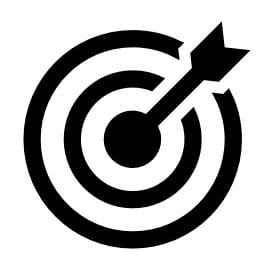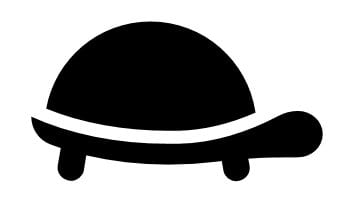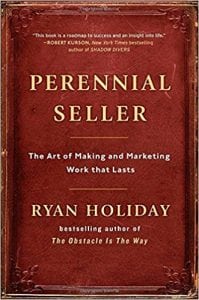-
Prepare for pain

Producing great work comes at a great price. Make sure you’re doing it for the right reasons (it’s going to be harder than you think).
-
Define the purpose BEFORE you start

Start off the creative process by asking: What purpose will my product serve in the world? How will it provide value to the people who buy it?
-
Forget what everyone else is doing

Don’t use the competition as a benchmark. Go in a different direction and make a product only you can make.
-
Don’t hide in a cave, hire an editor
“Nobody creates flawless first drafts. And nobody creates better second drafts without the intervention of someone else. Nobody.” – Ryan Holiday
Allow people to see your work early in the creative process. It will be scary, but necessary. Work made entirely in isolation will be valuable to just one person: yourself (everyone else will find it too convoluted and confusing). An editor helps you eliminate the good but non-essential components of a product.
-
Revise again, and again, and again…
“The buried insights found in those other great works were not put there on the first pass. Work is unlikely to be layered if it is written in a single stream of consciousness. No. Deep, complex work is built through a relentless, repetitive process of revisitation.” – Ryan Holiday
Triple the amount of time you spend polishing your product. You won’t regret it.
-
Don’t rush it

Adopt the long view. Spending an extra three days to get your product right won’t seem excessive three decades from now (when your product is still talked about).
-
Perfect the pitch
“Nothing else will matter— the quality of your product, the strength of your marketing— if the premise and the pitch of the product are wrong.” – Ryan Holiday
The quality of your pitch will depend on your ability to explain your product in one sentence. Ryan Holiday used this sentence to explain his book on Stoic philosophy to the public (who knew very little about stoicism): “This is a book that uses the ancient formula of the Emperor Marcus Aurelius to teach people how to not only overcome obstacles but thrive because of them.”
-
Launch as loud as you can

Most products need to reach a tipping point of sales (critical mass of people), to become a perennial seller (ex: new books typically need 10,000 sales before achieving sustained growth). Try to reach the tipping point as fast as you can. Concentrate your efforts around a narrow launch window.
-
Hard work only gets you so far
“No matter what we have heard from our parents and internalized as part of the American Dream, hard work does not trump all. At the very, very top, the world is not a simple meritocracy, and it never has been. As Nassim Taleb puts it, ‘Hard work will get you a professorship or a BMW. You need both work and luck for a Booker, a Nobel or a private jet.’” – Ryan Holiday
Just because you put in the hard work and made a great product, doesn’t mean it will be a perennial seller. A perennial seller requires luck to succeed. But you won’t you be able to make a perennial seller without hard work.
-
If it lasts, it will continue to last
“(E)very day something lasts, the chances that it will continue to last increase. Or as the investor and writer Nassim Taleb has put it, ‘If a book has been in print for forty years, I can expect it to be in print for another forty years. But, and that is the main difference, if it survives another decade, then it will be expected to be in print another fifty years. . . Every year that passes without extinction doubles the additional life expectancy.’ (this is called the ‘Lindy Effect’)…Think of it as compound interest for creative work.” – Ryan Holiday
Amazon book link: Perennial Seller
